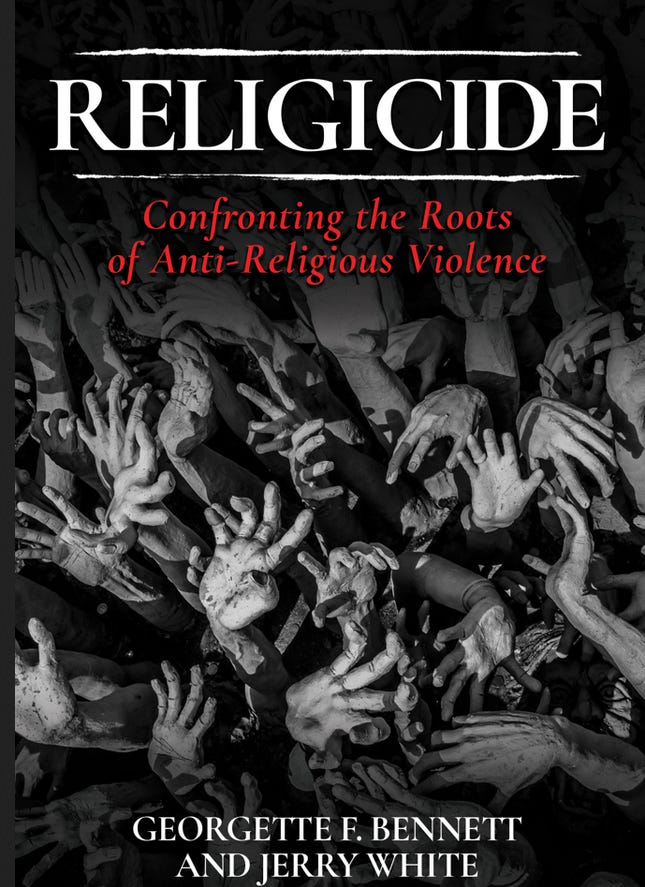POLICY & CALLS TO ACTION
Instead of trying to do this alone, we remembered, ‘Religicide: Confronting The Roots of Anti-Religious Violence’ by Georgette Bennett & Jerry White.
We sponsored a reading of the second-half excerpt, “Tech-Assisted Religicide: China’s Surveillance in Tibet”.
We are not certain of all the recommendations made from this text. Some of them coordinate, in part, with current G20 ESG/DSG structuring stapled to global climate change agendas and UN led disinformation campaigning. However, the information on Tibet’s genocide too long tolerated by UN governance is current. It works to prove that if it can happen to Tibet, it can happen to India, Pakistan, Laos, Vietnam, Indonesia and any beneficiary of the Tibetan water table.
We rely on you to listen and evaluate the content, the policy recommendations and discuss your viewpoints for US political solutions in Tibet juxtaposed.
SOURCES
Tracking GhostNet: Investigating A Cyber Espionage Network
This report documents the GhostNet - a suspected cyber espionage network of over 1,295 infected computers in 103 countries, 30% of which are high-value targets, including ministries of foreign affairs, embassies, international organizations, news media, and NGOs. The capabilities of GhostNet are far-reaching. The report reveals that Tibetan computer systems were compromised giving attackers access to potentially sensitive information, including documents from the private office of the Dalai Lama. The report presents evidence showing that numerous computer systems were compromised in ways that circumstantially point to China as the culprit. But the report is careful not to draw conclusions about the exact motivation or the identity of the attacker(s), or how to accurately characterize this network of infections as a whole. The report argues that attribution can be obscured. The report concludes that who is in control of GhostNet is less important than the opportunity for generating strategic intelligence that it represents. The report underscores the growing capabilities of computer network exploitation, the ease by which cyberspace can be used as a vector for new do-it-yourself form of signals intelligence. It ends with warning to policy makers that information security requires serious attention
Dahua & Amazon
Exclusive: Amazon turns to Chinese firm on U.S. blacklist to meet thermal camera needs
Chinese surveillance giant expanding in the US attracts scrutiny over possible targeting of Uygurs
China Press Censorship
China Deploys Drones to Surveil Foreign Journalists to Restrict Press Freedom: Report
The report also noted that Beijing had now deemed more areas “politically sensitive,” adding to previously known regions such as Xinjiang and Tibet. In 2023, these sensitive areas included regions bordering Mongolia, Russia, and Southeast Asia.
Listen to this episode with a 7-day free trial
Subscribe to Liberty in Many Directions to listen to this post and get 7 days of free access to the full post archives.












